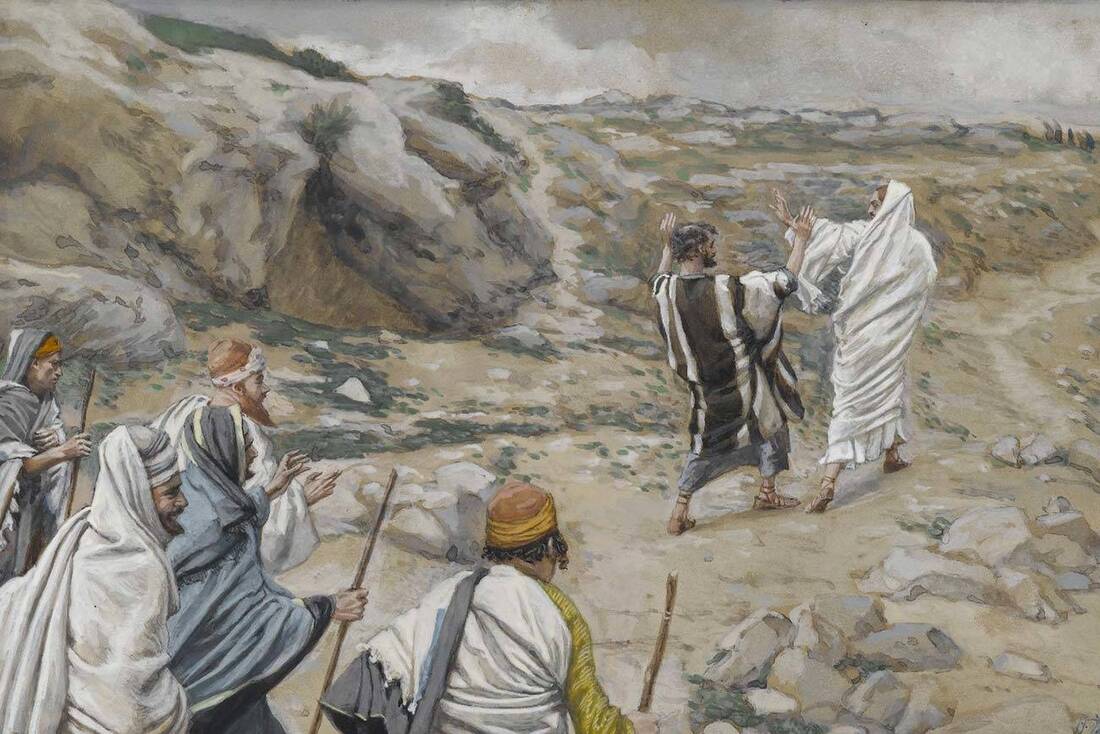|
As we begin Part 4 of The Lord, we are forced to face the horrible fact: we killed Jesus. The actual historical act was of course carried out by the Romans, at the bidding of the people of ancient Palestine. But not only does that decision made in history have its effects on us in the present, in a very real way we also participated in that act. We rejected Christ. As Guardini says in the closing lines of chapter two: “Everyone who hears Jesus speak of the ‘necessity’ of the road to Jerusalem, should substitute himself for the Scribes and the Pharisees. That necessity is woven of the eternal Father, of Jesus and his mission, and of me—all that I am and do; not a distant nation a long, long, time ago. It is I, with all my indifference, refusals and failings, who strap the cross of Calvary to Christ’s shoulders.” -Romano Guardini ("The Lord") St. Augustine speaks in similar terms with regard to the first sin of Adam (I have previously written about this here). Yes, it was Adam and Eve themselves who sinned in that historical moment, but we all participated in that sin, and thus we are all guilty of it. The story of salvation history is the story of man’s failure. We sinned in the Garden, and for it we were cast out. We made idols. We failed to uphold the demands of the Law. Now God enters into the world to usher in the Kingdom of God and restore the world to the glory it was meant to be, and instead of receiving Him with open and grateful and repentant arms, we strap Him to a cross to have Him executed. How different things might have been if we had not done so—if the Jews had recognized Jesus as the Messiah, and Jesus was able to usher in the New Age of the Kingdom of God. Instead, he was seen as a threat. The powers of the day managed to steer the crowds against him, and the will of the Father was such that the Kingdom of God would remain in a state of “coming.” Jesus was to head to Jerusalem for the last time, to be put to death, and every man now would have to contend with the decision to either accept or reject the Kingdom, his decision to be judged at the end of time. If only we were so obedient to the Father’s will as Jesus was. It was not easy for Jesus to face his death. He was just as much a man as you or I. Even more so when we consider he was without the sin that corrupts the rest of us. The pain of his impending death was felt more strongly than any we could ever experience. We see this in his prayer the night before: “My Father, if it be possible, let this cup pass from me; nevertheless, not as I will, but as you will." (Matthew 26:39-40) And perhaps even more strongly, we sense it in his reply to Peter, when Peter tries to convince Jesus not to go to Jerusalem and face execution. “Be gone, Satan!” (Matthew 4:10) His obedience to the Father’s will is too strong to be overcome, but it is as if he cannot bear the temptation to disobey. Not only his own death is at stake here, but also the lives of all men for all time. He carries the cross of us all, of all our failures and our sin, and being both fully human and fully divine he feels the full weight of it. “If one were to ask of the New Testament: What is Man? It would reply with the words of the apostle John: That creature whom God ‘so loved . . . that he gave his only-begotten Son . . .’ The answer immediately evokes a second: Man is that creature who dared to slaughter the Son God sent him.” -Romano Guardini ("The Lord") The Father sent his Son to us in the fullness of His love, so that we all might be saved from the sin that binds us and so that in perfect freedom we may see the coming of the Kingdom of God, which will reign forever. That is the primary characteristic of man: those who are most loved by God. But the other dark reality of man is that we, time and again, reject His love. We reject it so completely and so forcefully that we will literally put God to death to avoid it. We need a Savior indeed. We need the help of one who is strong enough to say to the temptation to sin “Get behind me, Satan!” With his help, perhaps we will be able to say it too, one day.
0 Comments
Leave a Reply. |
Series Info
Every day of Lent, I am writing a reflection piece on two chapters of "The Lord" by Romano Guardini. If you'd like to read or follow along, you can find the full calendar of where we're at below, or Click Here for the main landing page. Archives
April 2020
Categories
All
|

 RSS Feed
RSS Feed